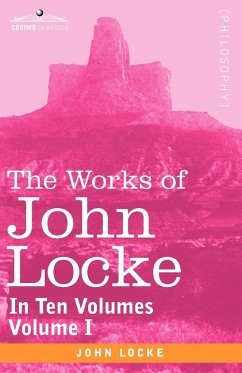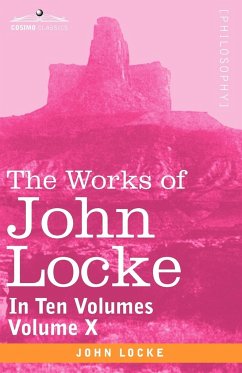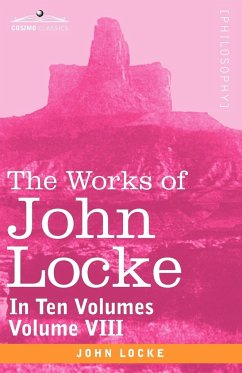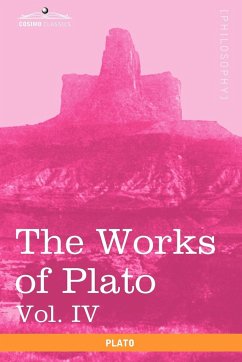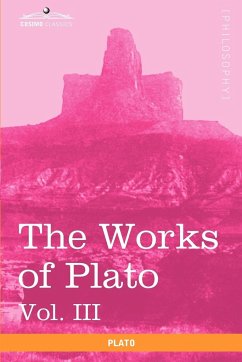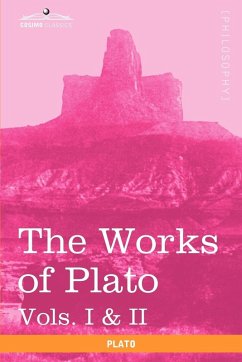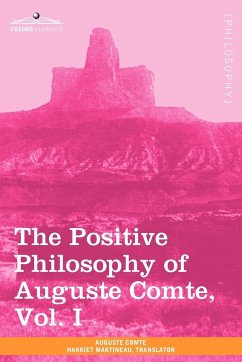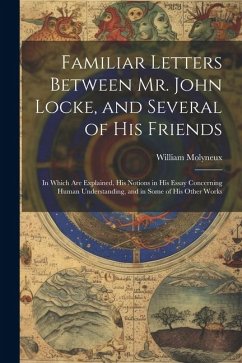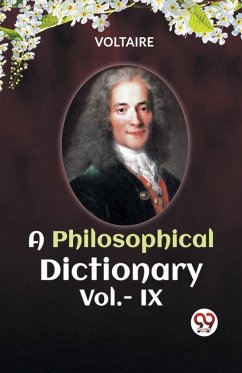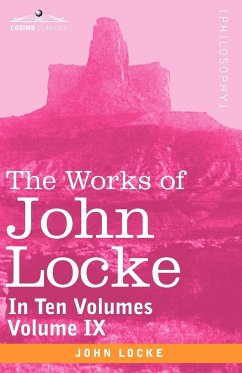
The Works of John Locke, in Ten Volumes - Vol. IX
Versandkostenfrei!
Versandfertig in 1-2 Wochen
25,99 €
inkl. MwSt.

PAYBACK Punkte
13 °P sammeln!
From the American and French revolutions to modern theories of consciousness to contemporary entertainment (the hit TV series Lost features a character named John Locke who espouses Lockeian concepts), the influence of English philosopher JOHN LOCKE (1632¿1704) falls wide and deep over Western culture. Yet his writings are less familiar to even serious readers and students of philosophy than that of other great thinkers of recent centuries. Here, Cosimo proudly presents, in 10 volumes, a replica of the 1801 tenth edition of Locke¿s collected works. Volume IX includes: ¿ Some Thoughts concer...
From the American and French revolutions to modern theories of consciousness to contemporary entertainment (the hit TV series Lost features a character named John Locke who espouses Lockeian concepts), the influence of English philosopher JOHN LOCKE (1632¿1704) falls wide and deep over Western culture. Yet his writings are less familiar to even serious readers and students of philosophy than that of other great thinkers of recent centuries. Here, Cosimo proudly presents, in 10 volumes, a replica of the 1801 tenth edition of Locke¿s collected works. Volume IX includes: ¿ Some Thoughts concerning Education ¿ An Examination of P. Malebranche¿s Opinion of seeing all Things in God ¿ A Discourse of Miracles ¿ Memoirs relating to the Life of Anthony, first Earl of Shaftsbury ¿ Some familiar Letters between Mr. Locke and several of his Friends



